The Search Is on for the First LGBTQ Supreme Court Justice, Thanks to These Presidential Pioneers
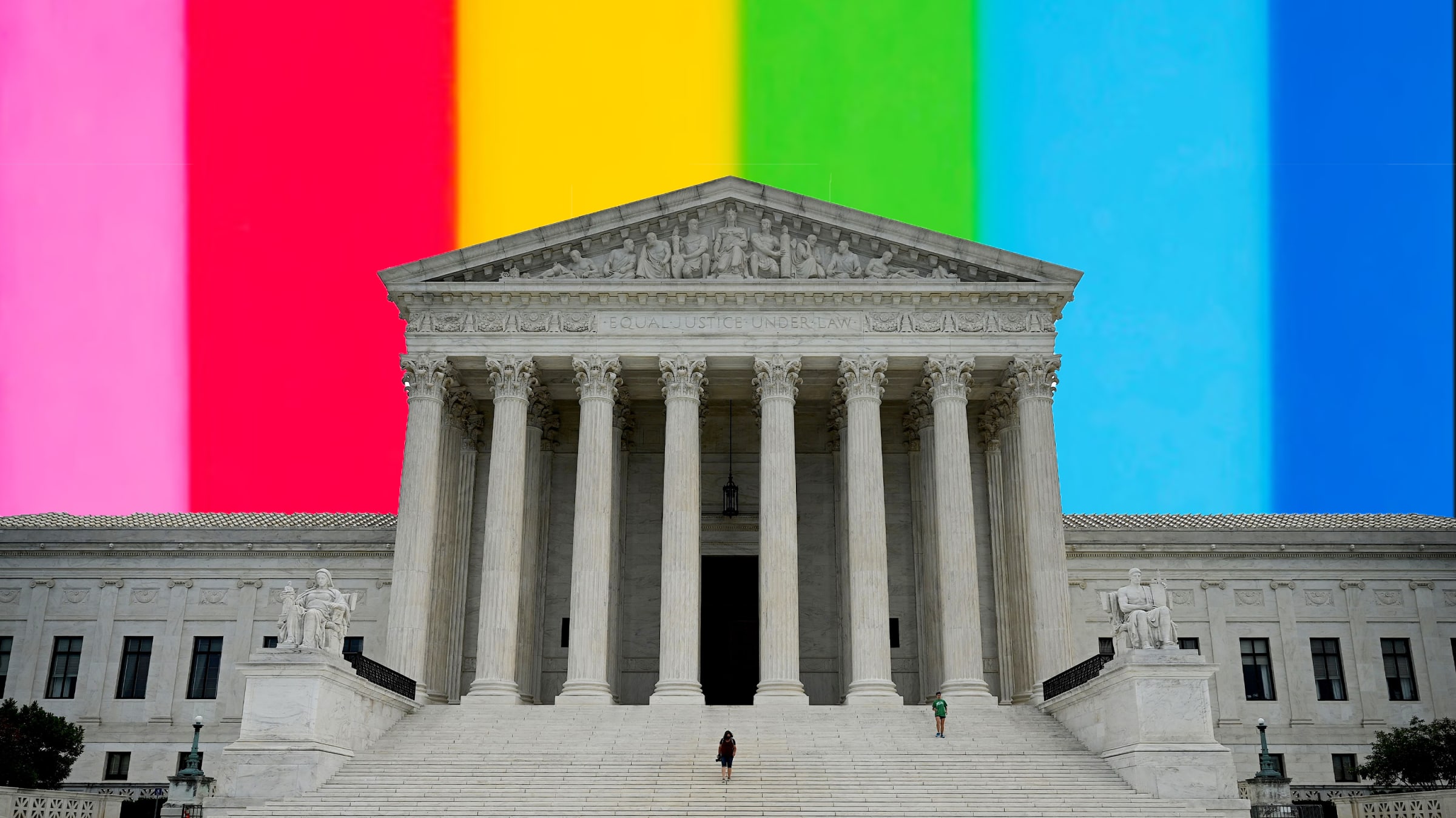
Photo Illustration by Kristen Hazzard/The Daily Beast/Photo Getty
The Victory Institute exclusively reveals its new LGBTQ presidential appointees’ campaign, while ex-Army Secretary Eric Fanning and others talk about being out and “in the room.”
Ruben J. Gonzales, vice president of the Victory Institute, and his colleagues have a favorite cautionary saying: “If you’re not at the table, you might be on the menu.”
Whoever forms the next administration, the Victory Institute—sister organization of the LGBTQ Victory Fund, which supports LGBTQ candidates running for office—would like that administration to appoint for the first time an out LGBTQ Supreme Court justice, the first Senate-confirmed LGBTQ Cabinet member, and the first ambassadors who are LGBTQ women, LGBTQ people of color, and transgender.
Revealing its Presidential Appointments Initiative exclusively to The Daily Beast, the institute said it would also like the administration to “ensure LGBTQ presidential appointees are equal to or exceed our percentage in the U.S. population.”
“We know that having LGBTQ people at the decision-making tables influences the policies put forward and ensures the LGBTQ community is understood firsthand,” said Gonzales. “That was reflected in the Obama administration’s guidance on protecting trans students under Title IX [revoked by current Education Secretary Betsy DeVos]. Even the most valuable allies we have may not know those experiences—around dealing with teachers, gym class, the nurse’s office. Some of those nuances we get from having LGBTQ voices at the table.”
Gonzales emphasized the campaign is not about tokenism or mere numbers. “It is important that these LGBTQ appointees are qualified. People who object to what we are calling for always say ‘it doesn’t matter’ if a person is LGBTQ, just that they are qualified. Yes, they should be, but LGBTQ people—our lives and experiences—should also be represented at these decision-making tables.”
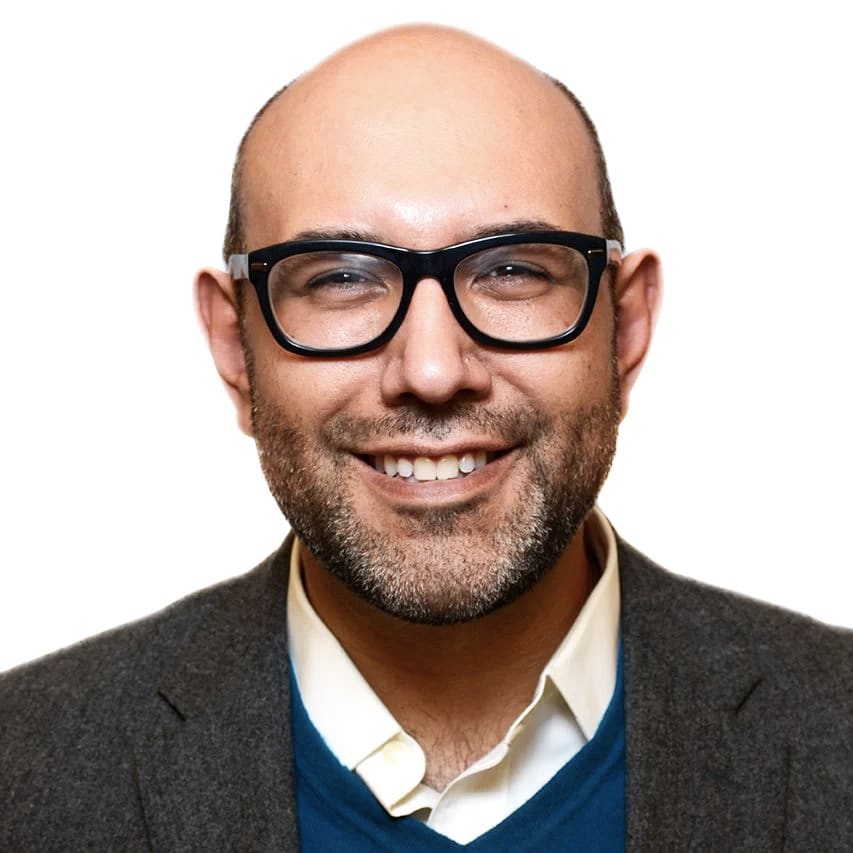
Ruben J. Gonzales.
Victory Institute
The first of the institute’s appointment initiatives was launched during the Clinton administration; of the Obama administration’s record-breaking 330 out-LGBTQ appointees, 158 were assisted by the institute.
Raffi Freedman-Gurspan, the first out-trans person to work as a permanent White House staffer, told The Daily Beast she did not realize her appointment as outreach and recruitment director on President Obama’s staff would “make the headlines around the world that it did.” She eventually became Obama’s primary LGBT liaison.
“I literally walked into the office, I kid you not, and saw myself on CNN and MSNBC announcing my appointment throughout the day,” she recalled to The Daily Beast. “It was a little bit of a shock, but I absolutely appreciated that this was a step forward for our community, particularly for trans women and trans women of color. I was also ready to just do my job as part of a brilliant team.”
James C. Hormel, who was the United States’ first out-gay ambassador—appointed by Bill Clinton to Luxembourg in 1999—told The Daily Beast he was “very aware” of making history because of the efforts made by the Senate to scupper his nomination.
“We had the votes, and we tried to get a vote for two years,” Hormel recalled. “But Trent Lott, then the Senate majority leader, wouldn’t bring it up, he absolutely refused. Finally, it was done as a recess appointment. Through the course of it all, I learned a great deal about how things worked and didn’t work in Washington, and international relations.”
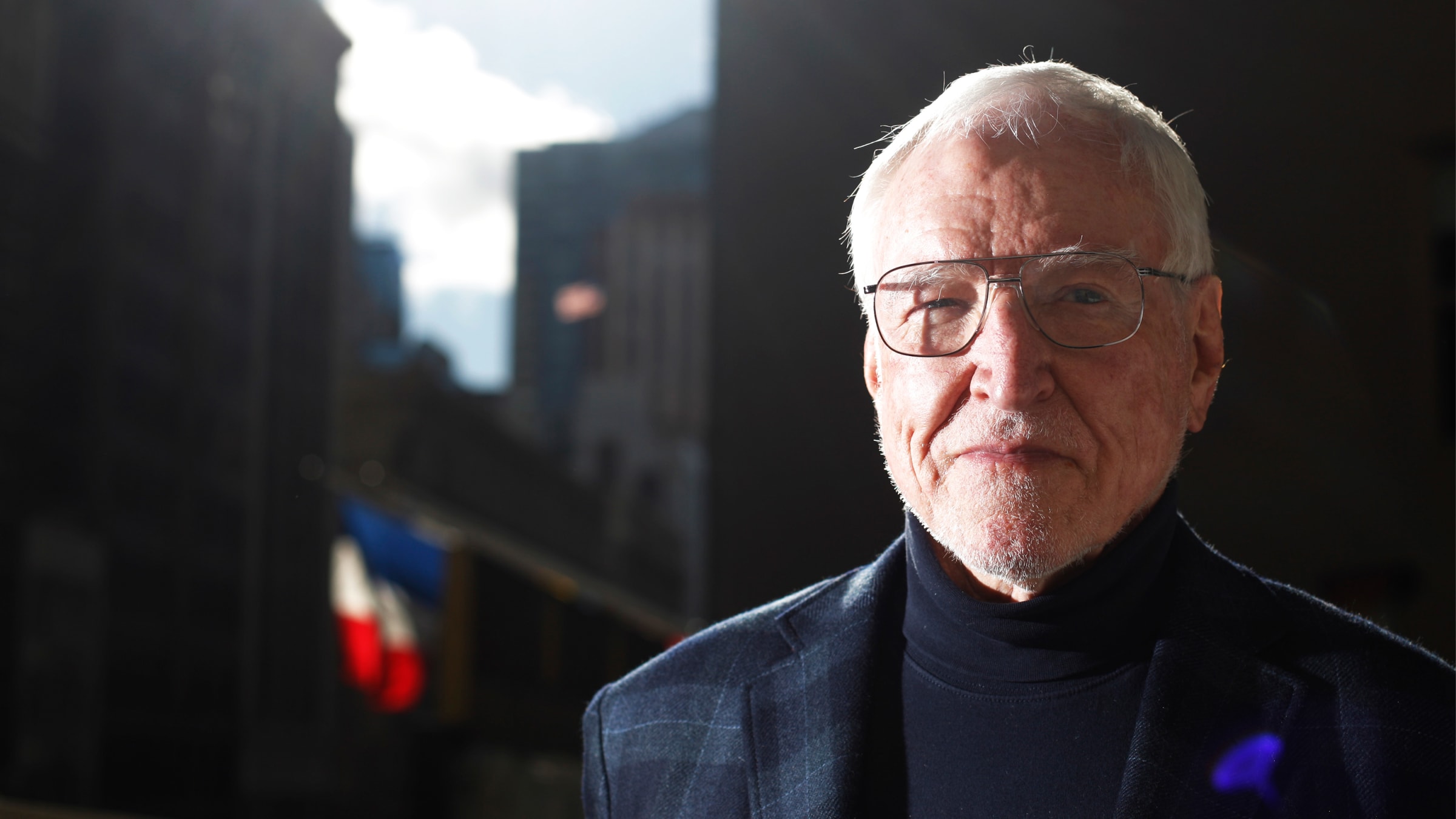
James Hormel.
Mike Kepka/San Francisco Chronicle via Getty
The homophobia Hormel faced, he said, “was ridiculous. The accusations were absurd. There was a definite ‘religion’ aspect to it. It was said out loud, ‘How can you send a gay man to represent us in a Roman Catholic country like Luxembourg?’ Meanwhile, Luxembourg had already approved the nomination and they were offended because they didn’t have an ambassador. They weren’t offended by me. They were offended by the process.”
Hormel said “the most ridiculous” charge was leveled by then-Arkansas Republican Sen. Tim Hutchinson, “who was one of three people who put a hold on my nomination. He asked me, ‘Would you disavow [famous nun drag troupe] the Sisters of Perpetual Indulgence?’ I replied, ‘I never avowed them.’ He said, ‘Well, you’re on a videotape laughing at them.’ I said, ‘Well, they were funny.’ It was one silly thing after another.”
Eric Fanning, former Army secretary (2016-17), was the first openly gay head of any service in the U.S. military. He had served in the Pentagon in both the Clinton and Obama administrations and “moved up the ladder, rung by rung,” he told The Daily Beast. The Victory Institute’s presidential appointments project helped connect him to his landmark post.
His sexuality first made news during the confirmation process for his role as undersecretary of the Air Force. “When I got the Army nod, I was more prepared, but it still got more attention than you expect or are fully prepared for,” he said. “I joke my name went from ‘Eric Fanning’ to ‘Gay Man’ during those transitions because that would be the headline. The difference was, with the Air Force appointment you would get to my name in the third paragraph. With the Army post it was in the first.”
Fanning hoped that the news might be “of value to someone to see ceilings broken, and provide inspiration for others who see they themselves in a job of leadership and, through me, know there is a path for them.”
Four years ago, The Daily Beast understands that the then-Hillary Clinton presidential campaign reached out to Fanning to inform him he was on the shortlist of five possible defense secretary picks. (Fanning would not comment on this to The Daily Beast.) Now, he said, the number of LGBTQ people who would excel in such roles has “exploded. There is no dearth of LGBTQ candidates. We had one running for president [Pete Buttigieg] rather successfully.”
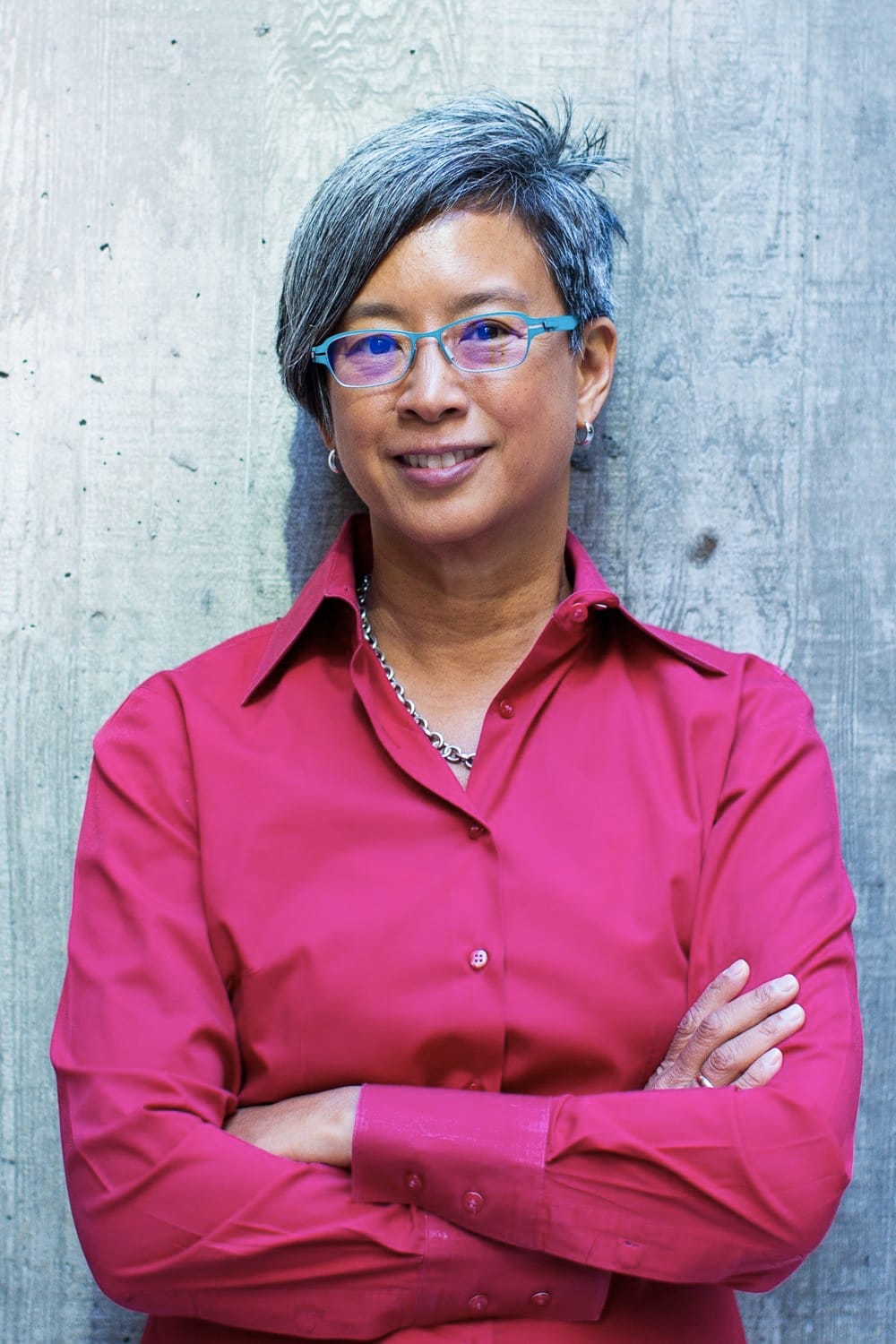
Ann Mei Chang.
Ann Mei Chang
“The government serves the people, and so should represent the full diversity of American people—and that includes LGBTQ Americans,” Ann Mei Chang, chief innovation officer of USAID from 2014 to 2017, told The Daily Beast. “If we don’t have people making the decisions, setting policies, coming from all walks of life, then it is hard for the government to truly represent the people.”
At USAID, Chang said she hoped she made a difference by being a role model for others “to see that it was possible to have a senior role in government as an out woman of color. I heard from younger staff that this was meaningful. It was incredible to show people something was possible that they may not have thought possible otherwise. We can’t underestimate how important it is to see people in roles who look like yourself, who come from backgrounds like yourself, and have experiences like yourself. It means those things might be possible for you.”
In the Trump administration, Richard Grenell, the former ambassador to Germany, served as acting director of national intelligence from February to May—making him the first out-gay person to serve in a Cabinet-level position. Last month, via Twitter, Grenell accused the Victory Fund of anti-Republican bias (tagging in the IRS), which the fund denies. “We are a 527 political organization! We are NOT tax-exempt! We are non-partisan because we choose to be, not because we have to be,” the group responded.
In the last 3 1/2 years, fewer than 10 LGBTQ people submitted their résumés to the Victory Institute, expressing an interest in working within the Trump administration. Nearly 100 people in the last month submitted résumés in the hope of a future Biden administration—reflecting, said Gonzales, the disparity many LGBTQ people see between where they see President Donald Trump standing on LGBTQ equality versus former Vice President Joe Biden.
“We are non-partisan,” said Gonzales. “If there are LGBTQ people who support full equality who want to join the Trump administration, we will support them.”
The importance of LGBTQ presidential appointees being “in the room” is made painfully apparent by the homophobia and transphobia of the Trump administration, Hormel claimed.
“The current administration, regardless of the words they speak, are doing whatever they can to diminish the LGBTQ constituency, especially in respect of transgender people and those trans people serving in the military,” Hormel told The Daily Beast. “It’s outrageous to me, and I don’t think it would be happening if there were more LGBTQ people in positions of leadership.”
“I thought, ‘This is a too important part of me to hide’”
For Ann Mei Chang, picking the first LGBTQ woman, LGBTQ person of color, or trans person as an ambassador would be significant, as she recalled seeing the-then “eight or nine” white gay male ambassadors together at a State Department event.
“It was a pretty shocking image. It didn’t represent the diversity of the LGBTQ community,” Chang said. “It’s important not only domestically that we represent the full diversity of the population but overseas too. It says something about what America is about. If ‘all LGBTQ people’ are white gay men, that’s a pretty limited view and offers a limited perspective. I’m as informed in my experience as an LGBTQ person as I am by being a woman and being Asian American.”
The discrimination is echoed in many institutions, said Chang, in “the advantages white men have, which also exist for gay people as well.”
The military was a particularly vexed arena for LGBTQ people—particularly as Eric Fanning built his career as “Don’t Ask, Don’t Tell” was both introduced and then repealed.
“In many ways the military was dragged kicking and screaming into change, but in other ways one could argue the military led the way. ‘Don’t Ask, Don’t Tell’ was repealed before marriage equality was won. But when I first served in the Obama administration and went back into the Pentagon and ‘Don’t Ask, Don’t Tell’ still existed, it was really strange for me. It didn’t apply to me, obviously, but to have this piece of discriminatory legislation still around I thought I would have to leave if it wasn’t repealed. I think my appointment had more resonance because of it.”
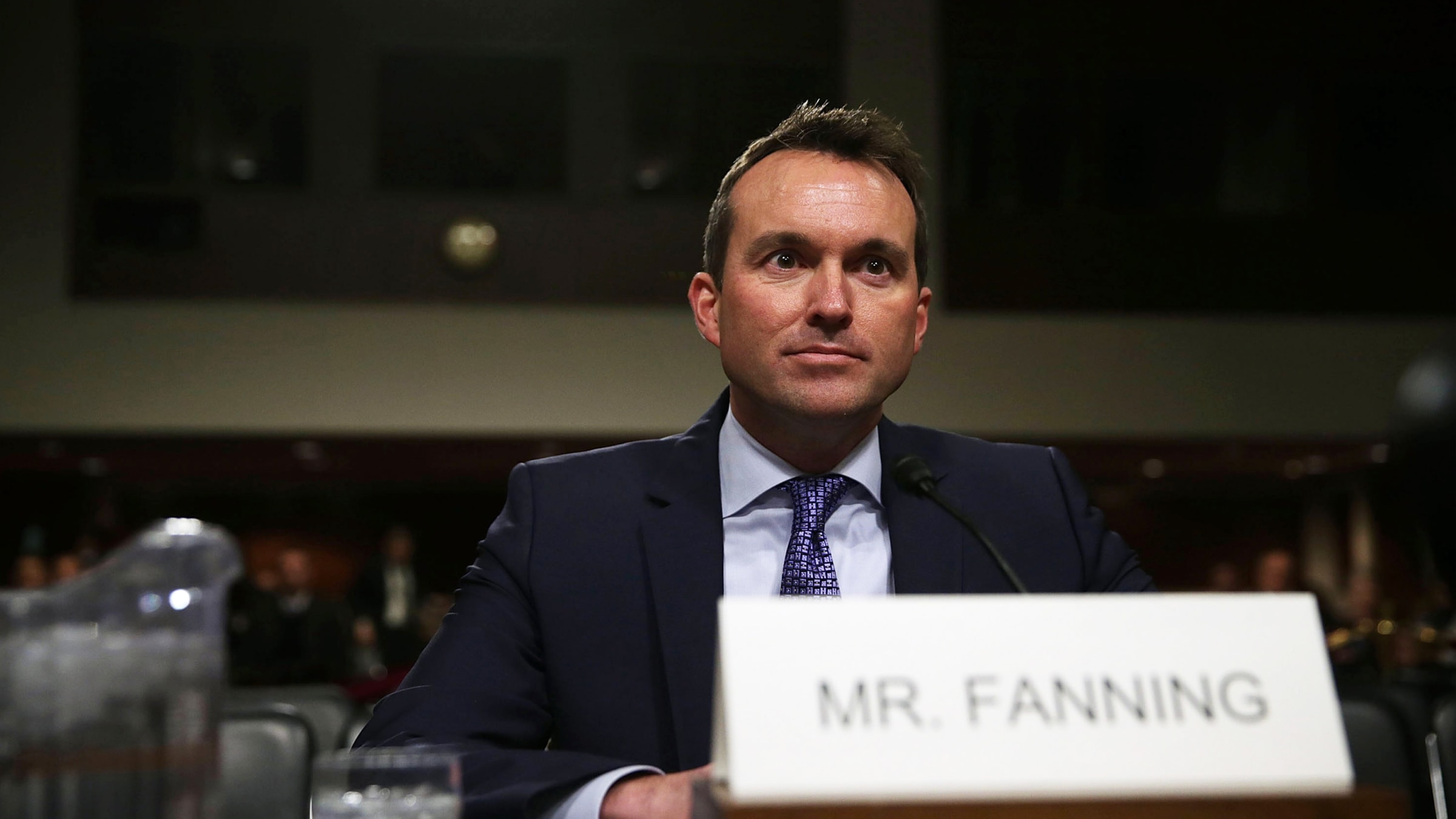
Then-acting U.S. Secretary of the Army Eric Fanning testifies during his confirmation hearing Jan. 21, 2016, on Capitol Hill in Washington, D.C.
Alex Wong/Getty
His sexuality “wasn’t a big deal” at the Pentagon. “If anything, it exposed me to more support. It wasn’t part of either confirmation process. I had worked in national security for many years and two presidential administrations. I had my bona fides. People knew me.
“I didn’t think how big a deal it was until I started hearing from people in uniform—some out, some thinking of coming out—that it had given them hope. Just because ‘Don’t Ask, Don’t Tell’ was repealed does not mean everybody was suddenly out. Still today, a lot of people are serving in silence.”
Fanning said he did not face any homophobia inside the job but did from commentators including Mike Huckabee and right-wing blogs. “The fact it was broadcast I was gay actually made life a lot easier. People think you have a coming out moment, but you are coming out all the time. One of the first questions in the military is, ‘Do you have a wife or partner?’”
Fanning said many people were supportive, others “didn’t care, and there’s that group like the old guys in the Muppets balcony [the iconic Statler and Waldorf] who complain about everything. But I thought, why make such an important decision about your life, personal integrity, and being able to live your whole self because of a worst-case scenario of those people who I promise are outnumbered by people who will support you.”
Indeed, at parties if Fanning brought a male friend, that person was “swarmed” by colleagues excitedly asking if he was a boyfriend. His now-husband, Ben Masri-Cohen, has also experienced this warmth. “I hadn’t anticipated the experience would be as positive as it was,” said Fanning. It was incredibly moving on his last day in office, he said, to be applauded out of the Pentagon with Masri-Cohen at his side.
Margarethe Cammermeyer, the colonel who in 1994 successfully challenged the then-ban on lesbians and gay men serving in the military in a landmark court case, told Fanning that she had never met anyone who regretted coming out.
It was seeing her story that inspired Fanning himself to come out, while serving in the Clinton administration. “I thought, ‘This is a too important part of me to hide.’ I didn’t think there was anyone else who was gay at the Pentagon back then, which is ridiculous. But I couldn’t see any openly LGBTQ people in the administration, I couldn’t see a career for me. I thought, ‘People like me don’t get promoted.’”
Fanning left the Pentagon, worked for CBS News, and returned under President Barack Obama.
There were, said James Hormel of his drawn-out ambassadorial appointment, “moments of depression and more moments of anger—and the anger and depression had to be tempered because they wouldn’t produce any result.”
In retrospect, he said, “it was helpful to me because when I arrived in Luxembourg, the government was very sympathetic and really went out of their way to work with me. We had an excellent relationship.”
In 1995, Hormel was proud to give a major speech at the U.N. Human Rights Commission in Geneva about HIV, AIDS, and human rights, “which was still an untouchable subject even then.” He also met delegates who could not be out in their countries of origin.
“Looking back my service was important, and looking at what has happened since any service is important,” Hormel said. “Look at Kamala’s [Harris] reception, my god. We should be ashamed of ourselves it has taken so long [for a Black woman to be a VP pick]. She’s wonderful. I know her well, and I am in great awe and have great admiration for her. She deserves all the accolades that will come her way.”
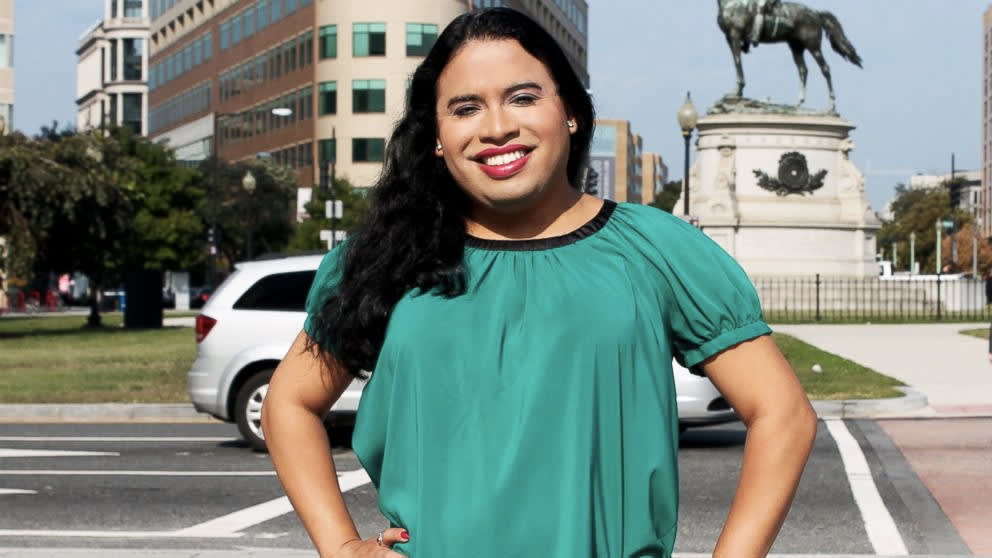
Raffi Freedman-Gurspan.
National Center for Transgender Equality/AP
Working in many government departments meant, said Raffi Freedman-Gurspan, that LGBTQ people and issues were brought up with regard to the Zika virus. “I was able to say, ‘A lot of this messaging is very heteronormative. Folks in our community get pregnant too.’ I could also talk to our advocates too about getting messaging out to the community.”
Without the presence of LGBTQ appointees, would the Obama administration have advanced so far on LGBTQ issues? this reporter asked Freedman-Gurspan.
“Simply put, no,” she said. “Our heterosexual and cisgender colleagues looked to us for guidance. It also fostered good community relations. Advocates couldn’t say the White House didn’t understand with me, and others, there. Part of my job was to have sometimes tough, delicate conversations with community groups about what we could and couldn’t deliver—and that could be difficult. But that’s part of a healthy relationship.”
Fanning is “100 percent convinced” that it makes a difference if LGBTQ appointees are “in the room.”
“I saw it in my own career. They will at least talk about the issues differently. I was in the room and not out, when the chiefs were talking about lifting the ban and introducing ‘Don’t Ask, Don’t Tell,’ which was a terrible compromise. At the time it felt like it was about getting us halfway down the field when really it was setting us off in the completely wrong direction.
“The ways they talked about gays and lesbians was startling to me—it was the most pejorative, stereotypical, and dismissive language. ‘This is immoral,’ ‘This is unacceptable,’ ‘This flies against the values of our country and the military and what we fight for.’ ‘My soldiers won’t stand for this.’
“There was a very conservative culture in the military. The chiefs at that time did not want to end the ban. Had I been out and they knew I was gay, it wouldn’t have necessarily made their views different, but they would have at least talked differently. My bosses would have at least been better bystanders, like, ‘Oh my god, Eric’s gay, we can’t talk like this.’”
That atmosphere didn’t stop Fanning from eventually coming out, but it did make him wonder if he wanted to work at the Pentagon. “It didn’t occur to me at the time that doing my job and doing it well, and others joining alongside me, could change the narrative and environment.”
Serving in the Obama administration, Fanning—then focused on lifting the ban on trans servicepeople (now re-established by Trump)—invited trans servicepeople to lunch with the chiefs of their branch of the military to talk about their experiences, “to humanize their story. It brought a whole new dimension to the issue.”
Fanning is hopeful that the courts or a Biden administration will strike the trans military ban down.
“The debate shouldn’t be, ‘Should these people serve?’ They already are. Trans people, like gay people, like women, have always been in the military. The policies should simply be updated to reflect it. We want and need people to join the military. Why are we making it more difficult for those who really want to? This is not about ‘identity politics,’ as people sometimes say. It’s about striking down barriers that are not related to the requirements to do a job.”
Fanning recalled that when the issue of “religious accommodations” was debated in the Army, he found the top brass resistant. “The colonels had the attitude ‘We’ll make it work,’ and then I met one young officer who told me that he was training alongside a Sikh who wore a turban, and ‘it’s fine,’ he said. Young people are growing up in a different world. When we were repealing ‘Don’t Ask, Don’t Tell,’ my boss spoke to his daughter about what she thought. She said, ‘I think you’re an idiot for even asking me the question.’”
Leaving her post, Freedman-Gurspan said she and her colleagues had “prepared a lot” for the Trump administration, “but they tossed the memos out. The reality is they have not done one positive thing for the LGBTQ community but instead a slew of anti-LGBTQ things. It’s such a shame. Our focus was on the American public writ large, while this administration has selected a few groups who will benefit, while excluding others, like immigrants and LGBTQ folks.”
As an LGBTQ presidential appointee, she hoped she was “not just giving back to the LGBTQ community, but to the country at large, and it was an immense pleasure to do so.”
The numbers of LGBTQ appointees under Obama had, said Chang, made for a powerful community of people and colleagues then and now, which at the time—busy as they all were—“gave me a delightful window into the diversity of experiences and people in different parts of government.” Many still keep in touch and meet up at events, said Chang, now a consultant and author of Lean Impact: How to Innovate for Radically Greater Social Good.
While Chang has not followed every LGBTQ twist and turn of the Trump administration, “because it has been so disheartening,” she has heard that many LGBTQ people working in government do not feel as supported as they did before. “This is people’s careers and livelihoods, and when they feel they can’t be their full selves it’s damaging on so many levels,” she said.
“There is a wealth of LGBTQ talent and experience”
Ruben J. Gonzales told The Daily Beast that the “first-ever” targets the Victory Institute is announcing Friday would be “more likely” realized under a Biden than second Trump administration.
Despite the pro-equality rollbacks of the last four years, Gonzales said there has been a doubling in the number of out LGBTQ elected officials across the country—from fewer than 430 in 2016 to more than 860 now. “The number of out LGBTQ senators doubled with the election of Kyrsten Sinema [Arizona; alongside Tammy Baldwin, Wisconsin], and governors with the election of Jared Polis [Colorado; alongside Kate Brown, Oregon],” he said.
Gonzales prefers not to look at why it has taken so long to break glass ceilings but rather observes that “there is a wealth of LGBTQ talent and experience” that should make the targets identified by the institute achievable, including the LGBTQ judges serving at every level of the court system who would make sound SCOTUS nominees.
Sen. Tammy Baldwin (D-WI), Maura Healey (Massachusetts’ attorney general), and Rep. Mark Takano (D-CA) would make excellent Cabinet secretaries or hold senior positions, Gonzales said, while Pete Buttigieg could be a “well-informed” secretary of state, “representing our country well and restoring some of the faith lost in the United States.”
An LGBTQ pick in the health and housing departments would be powerful, given the Trump administration’s deployment of anti-trans policies in both.
When it comes to the Supreme Court, Gonzales noted “the depth and nuance” that Justice Sonia Sotomayor brought to her recent DACA concurrence as reflecting how valuable a future LGBTQ justice’s lived experience could be on the bench. The same principle applies to a Senate-approved Cabinet-level position, Gonzales said. “The presence of LGBTQ officials in these rooms makes room for more understanding and a much more nuanced conversation about our lives, and how those lives are reflected in policies and rulings.”
“LGBTQ folks serving in any capacity in any place of employment bring their authentic selves and that perspective to work,” said Raffi Freedman-Gurspan. “One of the great things about the Obama administration was that many of us were out and serving in different positions.”
Freedman-Gurspan said the plurality of LGBTQ voices in the Obama administration was a strength she hopes is replicated in future administrations, while recognizing that the LGBTQ community “is not a monolith. We have diversity in our politics and community—and that is part of a healthy democracy and human condition.
“However, it is troubling to know our community—especially the trans community—has really been a target of this administration. We’ve seen rollbacks for trans kids in schools, to the trans military ban, and most recently in access to health care. We can’t see that the few gay men in the Trump administration have fostered any goodwill toward our community from the administration itself.”
For Eric Fanning, a Senate-approved Cabinet pick would be more potent a first than an LGBTQ Supreme Court justice, “because from Day 1 the president can choose that person.”
The Victory Institute’s presidential appointments project, which benefited Fanning, he hopes will benefit others. “Diverse teams lead to more creative solutions,” he said. The challenge now, he said, is to ensure that “diversity” does not just mean white gay men but LGBTQ people of color, LGBTQ women, and trans people.
In the national security field, Fanning said, “there is a broad, deep, diverse bench like never before of women, minorities, and LGBTQ people who are worthy of many positions. My hope is that the ceiling will be broken at the Pentagon with the first female secretary of defense and she will be awesome.”
For Freedman-Gurspan, any of the symbolic first-ever appointments identified by the Victory Institute would be important to fill. If a SCOTUS justice, “I just want to make sure they are a good judge who understands the law and is impartial. A Cabinet secretary would have real practical impact on people’s lives. As a trans person, I am part of a community affected by this. I want kids like me treated as equals, for people like me not to be kicked out of housing, and that if they have complaints that those complaints are not falling on unresponsive ears and eyes and are taken seriously.”
Freedman-Gurspan is now the deputy states director at the National Democratic Redistributing Committee, focused on “ending partisan gerrymandering.” She said the young person mulling a career in politics versus “becoming a nuclear scientist” should know the latter could mean ending up running NASA one day, and having just as much public impact—perhaps more—as forming public policy.
Would Fanning like to take on a top job again? “I’m very happy with work and life now,” he said cautiously. (He is president and CEO of the Aerospace Industries Association.) “Those of us who do this have public service in our blood. It’s a calling. I don’t know when, but at some point I would love another opportunity to serve in that capacity.”
“Whoever is elected in November will make a big difference,” Ann Mei Chang said. “Biden has a commitment to LGBTQ issues and staff compared to what we see in the Trump administration. There will be setbacks such as this current administration, but, as Martin Luther King said, ‘The arc of the moral universe is long, but it bends toward justice.’ In the fullness of time, in the grand scheme of things, we will continue to see progress.”
The State Department, former Ambassador Hormel told The Daily Beast, is particularly “pathetic” and a “major international disaster” under Trump. “I’m very concerned about how long it will take to mend relationships. The current secretary of state [Mike Pompeo] has taken actions that are appalling, and totally unsupportive of our position in the world, particularly when it comes to LGBTQ people.”
“The most important single thing any LGBTQ person can do is come out,” Hormel said. “I have been saying this for 50 years. People still claim they don’t know any LGBTQ people, they still try and make out we are something we are not. Coming out is the most powerful weapon against that.”
